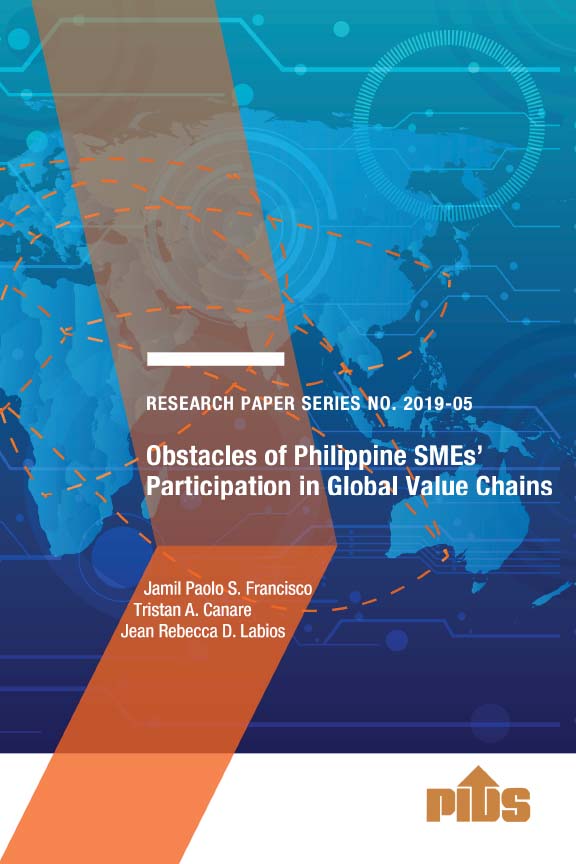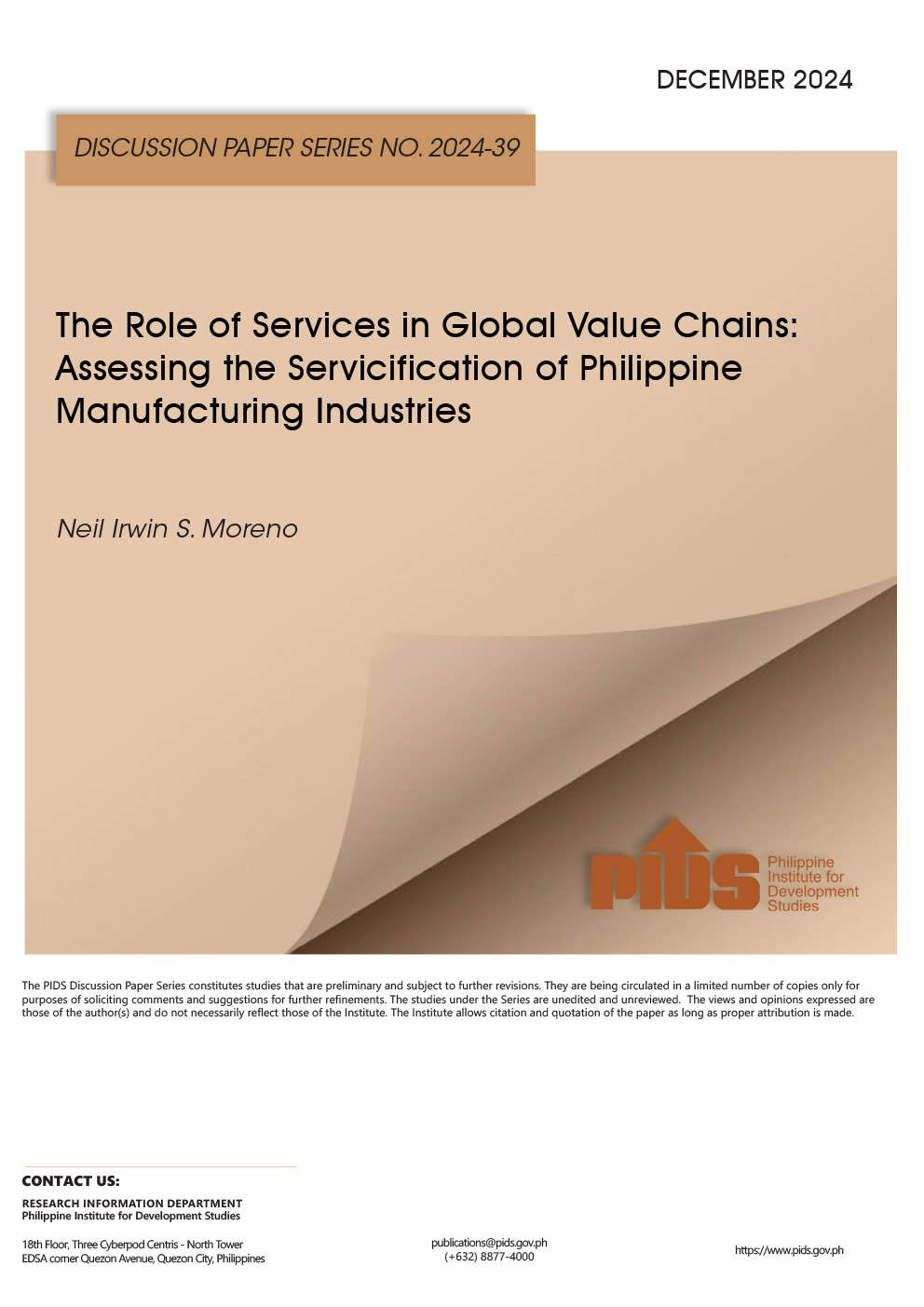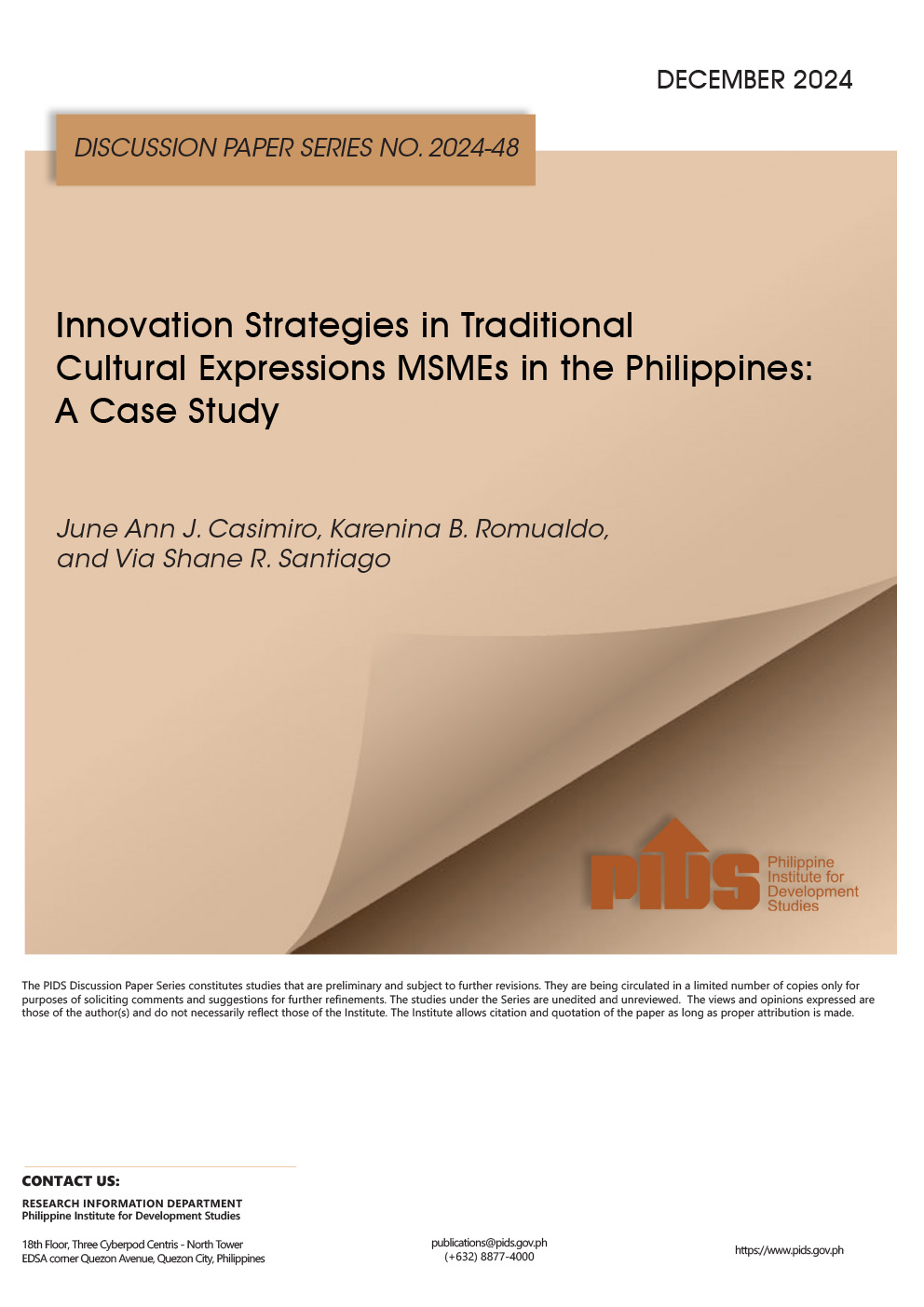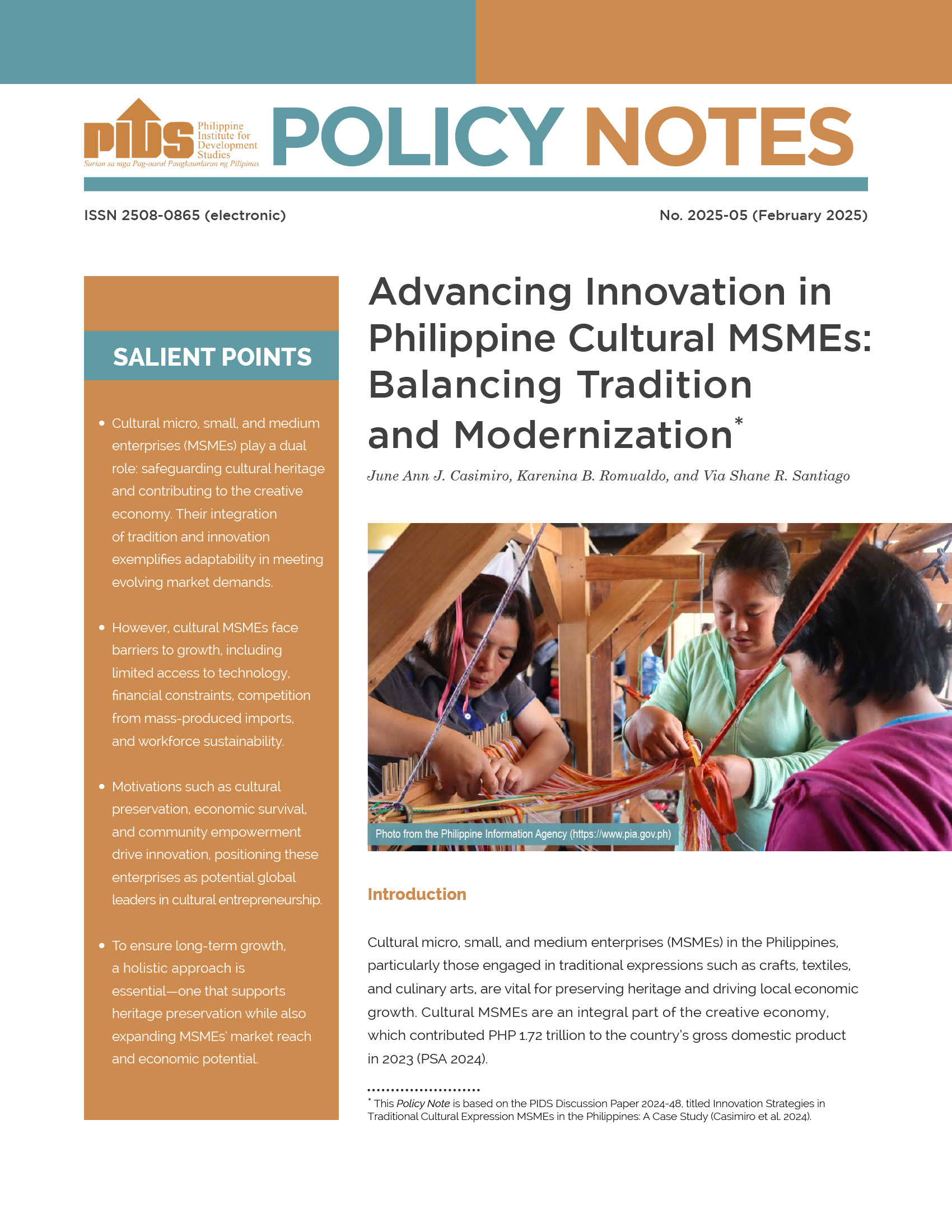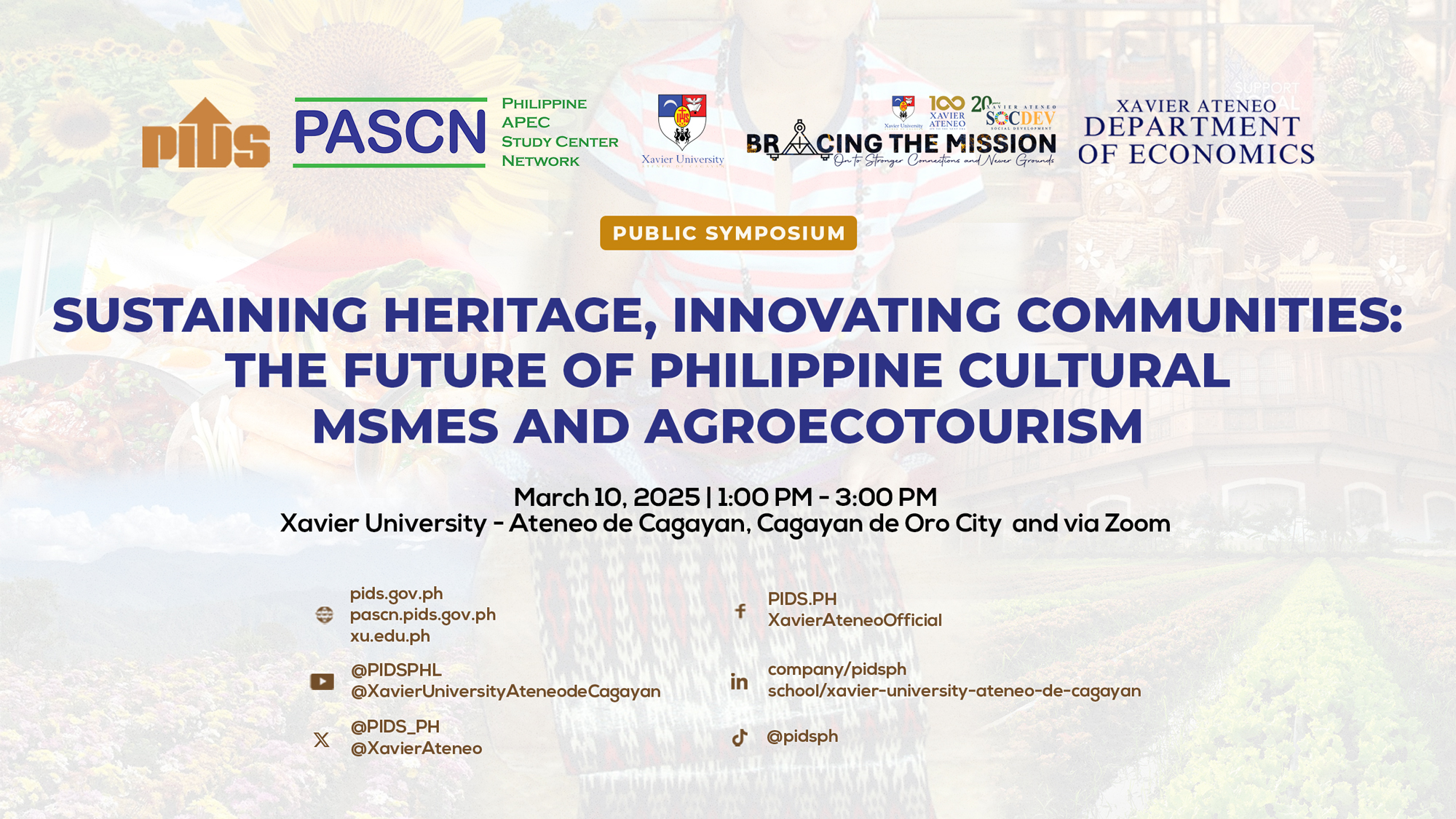Small and medium enterprises (SMEs) play an important role in the economy of many developing countries. In the Philippines, SMEs, including microbusinesses, account for 99.5 percent of firms and 63.2 percent of employment. However, this sector remains much less productive than their large counterparts. One way to help SMEs achieve higher productivity is to connect them to global value chains (GVCs). There are, however, a number of obstacles that make participating in GVCs difficult for SMEs. This paper attempts to determine the challenges as well as the enablers of connecting SMEs to GVCs. Findings indicate that Philippine SMEs are weakly linked to GVCs. The challenges and enablers can be grouped into five themes: (1) competition among countries in Southeast and East Asia; (2) international standards, regulatory requirements, and local institutions; (3) role of the government and institutions; (4) adapting to changes in international market demand and input supply; and (5) entrepreneurial mindset and skills.
Citations
This publication has been cited 3 times
- BusinessMirror. 2020. Exporters told to build own profitable market niche, focus on indirect sales. BusinessMirror.
- Philexport. 2020. SMEs urged to comply with quality standards. Philippine News Agency.
- SunStar Cebu. 2020. SMEs not well connected to global value chains. SunStar Cebu.

